Quality Management for Epsilon Inflatables
# Your trusted Inflatables manufacturer
Built on ISO 9001/14001/45001 and strict CPSIA/REACH/ASTM conformance, Epsilon’s quality system controls every variable that matters for inflatables—materials, HF welds, valves, packaging, and regional regulations. Our US/CA/UK/DE warehouses uphold the same standards for consistent customer delight. Ready to raise your quality bar? Talk to Epsilon.
Why Quality is important?
At Epsilon, we believe that product quality is the foundation of every successful brand. In the inflatable products industry—where safety, durability, and user experience are non-negotiable—consistent quality directly translates into customer satisfaction, stronger reviews, and repeat purchases. High-quality inflatables not only enhance your brand reputation but also foster long-term trust with both retail buyers and end consumers.
Our commitment to excellence runs through every stage of production—from PVC material formulation and structural design to air-tightness testing and packaging verification. This ensures that every inflatable leaving our factory meets or exceeds international safety standards such as ASTM, CPSIA, EN71, and REACH. Maintaining these standards isn’t just a process—it’s a promise to every partner who values reliability and brand integrity.
The True Cost of Poor Quality
Cutting corners on quality leads to more than just product defects—it damages your brand’s reputation and profitability. Returns, refunds, and negative reviews can quickly erode consumer confidence, especially on platforms like Amazon where visibility and trust define success. Beyond direct financial losses, the hidden costs—lost opportunities, damaged brand equity, and reduced customer lifetime value—can be far greater.
By upholding strict quality control and continuous improvement, Epsilon helps you avoid these pitfalls, ensuring your inflatable products deliver satisfaction, safety, and long-term market success.


Materials Compliance
Our polymer specialists optimize PVC and composite films for durability and safety. Every lot is verified against phthalate limits, heavy metals, and odor thresholds. UV packages protect colors on pools and holiday inflatables; cold-crack additives maintain flexibility for snow tubes. For pet products, surface hardness balances bite resistance with comfort.
Documentation includes COA, MSDS, and third-party test reports per region. Labels and manuals carry age grades, choking-hazard warnings, and care symbols. With compliant inputs, downstream processes become more stable—fewer scrap events, tighter welding windows, and better cosmetic results.
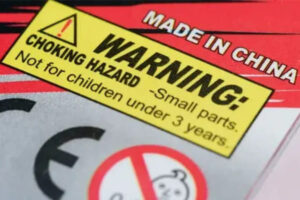
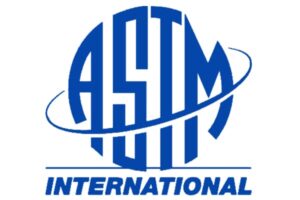
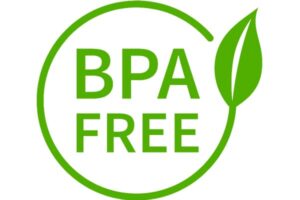
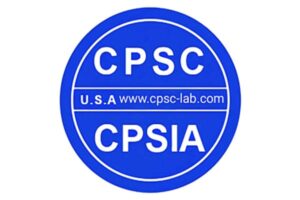
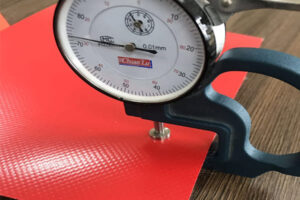
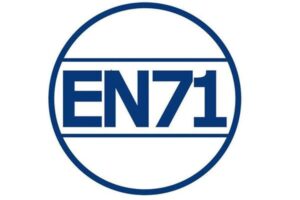

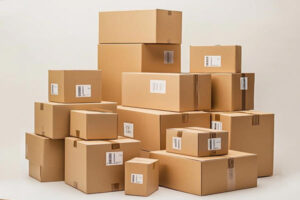
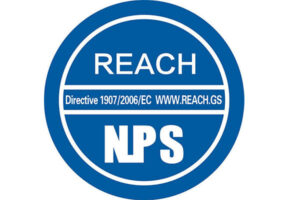
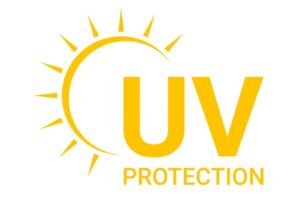

Incoming Quality Control
Before a single weld, we validate inputs. IQC measures film thickness, durometer, tensile strength, gloss, and color ΔE under standard lights. Printing inks are rub-tested; zippers, handles, and webbing undergo pull tests; valves are leak-screened with torque checks. Non-conforming lots are quarantined and reported via supplier CAPA.
Each PO ties to retained samples and photos for traceability. This discipline protects throughput and ensures that downstream welding and forming operate within known, repeatable windows. Your brand benefits from fewer hidden risks and a tighter spread of product performance.

HF Welding Control
Seam integrity defines inflatable safety. Our HF weld cells are recipe-locked: power curve, pressure, dwell, and cooling are recorded per seam type. Tooling is inspected for flatness and burrs, while electrodes receive preventive maintenance to avoid hotspots and flash marks.
SPC charts watch Cp/Cpk for critical seams (rings, load handles, valve seats). We run burst tests on golden samples to verify margins, then authorize mass production. The payoff is measurable—higher seam strength, fewer micro-leaks, and better durability under bending and torsion.

Lab Testing
Our lab executes more than 500 tests annually. Typical protocols include cyclic pressure, burst, seam peel, UV exposure, colorfastness, abrasion, and chemical migration. Snow tubes face low-temperature flex; water toys undergo chlorine and salt-spray checks.
Each new SKU receives a validation plan that defines acceptance criteria and re-qualification triggers (material change, tool revision, supplier move). Results land in a digital file set linked to batch IDs, so evidence is audit-ready for retailers and authorities.
How Epsilon Inspects Your Inflatable Products
At Epsilon, every inflatable we produce undergoes a multi-stage inspection process that meets the highest international quality standards. Whether you’re enrolled in our Pro Plan or Basic Plan, our inspection protocol ensures that every unit we ship is safe, durable, and defect-free before it reaches your customers.
Here’s how our inspection system works:

1. Pre-Production Check
Before mass production begins, our team carefully reviews PVC materials, valves, accessories, printing accuracy, and structure molds to ensure everything aligns with your specifications and compliance requirements. This step prevents inconsistencies and material mismatches early on.

2. During Production Inspection
Our QC team performs real-time monitoring during manufacturing. Through spot checks and pressure testing at multiple stages, we identify and correct potential defects immediately—ensuring consistent air-seal strength, color uniformity, and surface quality across every batch.

3. Final Random Inspection (FRI)
Using the AQL 2.5 international standard, we conduct a detailed random inspection of finished inflatables. Our inspectors test for air retention, seam bonding, print clarity, and valve integrity, ensuring each product meets Epsilon’s strict durability and safety criteria.

4. Packaging and Labeling Review
Before shipment, our team checks every unit’s packaging, labeling, barcoding, and instruction materials to confirm compliance with U.S., EU, and Amazon standards (CPSIA, REACH, EN71). This ensures your products arrive retail-ready.

5. Loading Supervision (Optional)
For clients who request it, we oversee the loading process to verify correct quantities, proper carton labeling, and careful handling, minimizing risks of damage during transport.
By implementing this 5-step quality control system, Epsilon guarantees that only products meeting the highest standards leave our factory. Our meticulous inspection process safeguards your brand reputation and ensures that every inflatable delivers the performance, safety, and reliability your customers expect.
Warehouse & After-Sales
The same standards live in our US/CA/UK/DE sites. Returns are photographed, seam-tested, and categorized for refurbish or disposal. Findings loop to CAPA and design teams—manual clarity, accessory updates, or reinforcement zones—to progressively reduce defect drivers.
Your customers receive fast, consistent resolutions; your brand receives actionable data and measurable lifetime value gains.

Frequently Asked Questions
Q1: Which standards does Epsilon follow for inflatable safety and chemistry?
We align with CPSIA/ASTM for North America and EN71/REACH for Europe, plus retailer-specific protocols when applicable. Each batch links to test reports for phthalates, heavy metals, colorfastness, seam strength, and valve integrity, ensuring traceable compliance evidence for audits.
Q2: How do you prevent seam failures and slow leaks over time?
We recipe-lock HF welding (power, dwell, pressure, cooling) and maintain electrode flatness. Reliability testing adds cyclic pressure and folding cycles to expose creep or micro-leaks. When risk patterns appear, reinforcement tapes and geometry tweaks are standardized in SOPs.
Q3: Can Epsilon customize quality controls for different inflatable categories?
Yes. Splash pads emphasize UV and chlorine resistance; kayaks require higher seam strength and abrasion guards; snow tubes focus on low-temperature flex. Each category has a tailored control plan, validation tests, and packaging protections tied to its use environment.
Q4: What documents can you provide to retailers or platforms during reviews?
We provide certificates (CPSIA/EN71/REACH/ASTM), test reports, COA/MSDS, packing lists, invoices, and labeled photos mapped to batch IDs. Because files are organized in a digital repository, documentation requests are answered quickly to reduce suspension risk.
Q5: How do you handle returns to improve product quality?
Returns in US/CA/UK/DE are inspected for seam, valve, and cosmetic issues. Each case is coded and fed into CAPA. If manuals cause misuse, we revise visuals; if a component shows fatigue, we adjust materials or weld recipes to prevent reoccurrence.
Q6: What AQL levels do you apply before shipment?
We use customer-agreed AQL levels for critical, major, and minor defects, with functional inflation and pressure-hold checks on every lot. Any deviation triggers hold and rework. Third-party inspections (SGS/TÜV) are welcomed and supported with full documentation.
Q7: How is packaging quality connected to fewer returns and better reviews?
Right-sized cartons, corner protection, and clear quick-start guides reduce setup errors and transit damage. FBA-ready barcode zones speed inbound; eco materials like FSC boards support brand values. These choices lower claim rates and improve customer sentiment.
Q8: Can you support rapid scaling during seasonal peaks without quality drift?
Yes. We lock golden samples and process windows, then scale with capacity plans and layered audits. Seasonal forecasts drive earlier material buys and validation runs. Warehouse QA ensures returns are resolved quickly, protecting ratings while volume surges.

Partner with Epsilon
Turn quality into compounding advantage. Epsilon unites compliant materials, controlled welding, harsh-environment testing, and global warehouse QA into one measurable system. Whether you sell splash pads, kayaks, snow tubes, or décor, we adapt controls to each risk profile and region—so you scale safely.








